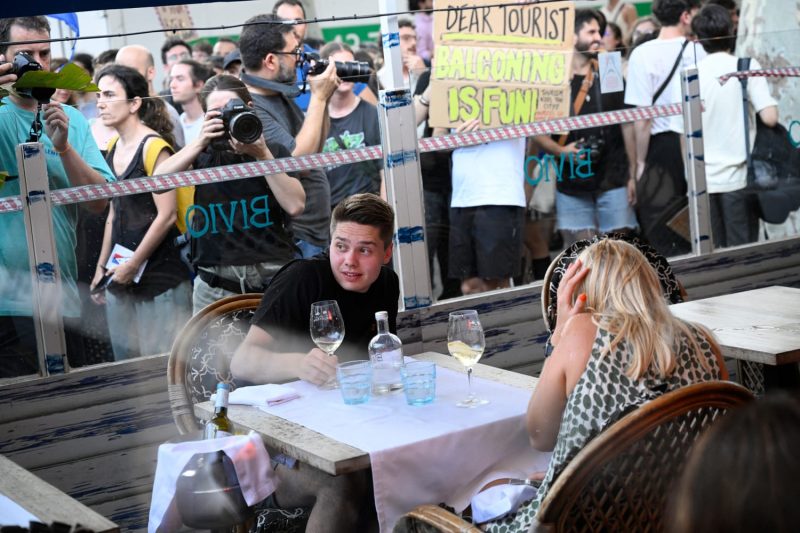The recent protests in Barcelona, Spain have garnered attention worldwide as tourists and locals alike witnessed escalating tensions in the popular travel destination. This incident serves as a poignant reminder of the complex interplay between globalization, tourism, and local sentiment in cities grappling with the impact of mass tourism. While Barcelona has long been a sought-after destination for travelers drawn to its rich history, cultural heritage, and vibrant atmosphere, the influx of tourists has also brought about various challenges for the city and its residents.
The eruption of protests in Barcelona, characterized by demonstrators throwing items and spraying travelers with water while shouting tourists go home, underscores the deep-seated frustration felt by many locals. Over the years, Barcelona has experienced a surge in tourism, leading to issues such as overcrowding, rising rents, and a decline in the quality of life for residents. The commodification of the city as a tourist hotspot has transformed its neighborhoods, eroding the sense of community and cultural authenticity that once defined Barcelona.
At the heart of the protests lies a clash of interests between the tourism industry, which fuels the city’s economy, and the local population, who bear the brunt of its negative externalities. While tourism brings economic benefits and job opportunities to Barcelona, it also exacerbates inequality, displaces long-time residents, and contributes to environmental degradation. The protesters’ call for tourists to go home reflects a broader discontent with the unchecked growth of tourism and its impact on the social fabric of the city.
In response to the protests, local authorities have been prompted to address the grievances of residents and implement policies to regulate tourism more effectively. Measures such as limiting the number of tourist accommodations, promoting sustainable tourism practices, and engaging with the local community to ensure their voices are heard are crucial steps towards achieving a balance between tourism and the well-being of residents. By fostering a more sustainable and inclusive tourism model, Barcelona can preserve its cultural heritage, protect its neighborhoods, and enhance the overall quality of life for both residents and visitors alike.
Ultimately, the protests in Barcelona serve as a wake-up call for cities around the world grappling with the challenges posed by mass tourism. As the tourism industry continues to boom, it is essential for cities to prioritize the needs and aspirations of their residents while also catering to the interests of visitors. By fostering a harmonious relationship between tourism and local communities, cities can reap the benefits of tourism without compromising their social fabric and cultural identity. Barcelona’s journey towards achieving this delicate balance serves as a valuable lesson for cities seeking to navigate the complexities of tourism in the 21st century.




























